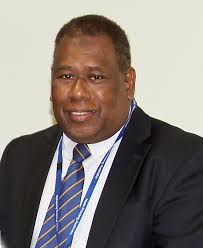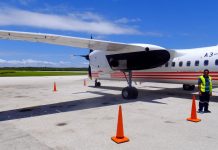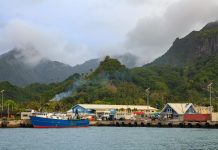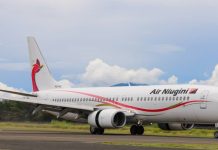A new World Bank report on the challenges facing the Pacific region’s outer island communities identifies investment in people and livelihoods as a key for inclusive economic growth.
Archipelagic Economies: Spatial Economic Development in the Pacific looks at the challenges Pacific governments must address to provide services and infrastructure to populations spread across hundreds of islands spanning the vast Pacific Ocean. The report puts forward a series of practical steps that countries can take to overcome these challenges in a way that supports resilient and inclusive economic growth.
“Many Pacific countries are faced with significant challenges in delivering services and connecting remote, outer island communities; with difficult decisions around resources and how to best invest often limited resources into outer island communities,” said the report’s lead author, World Bank Lead Economist for Fiscal Policy and Sustainable Growth Robert Utz.
“This report aims to provide Pacific governments, development partners and decision-makers with evidence to assess options for fostering development for the people in those outer islands, so they can make stronger contributions to the larger economic development of the whole country.”
The report identifies six guiding economic policy principles:
*Policy solutions that seek to achieve equitable increases in living standards need to be grounded in an understanding of the economic implications of the Pacific region’s unique economic geography.
*Outer islands’ development should be assessed from a spatial perspective; one that considers interactions with the country’s main island and the region beyond.
*A balanced approach that combines investments in urban areas to accommodate migration from outer islands to main islands with support for outer island populations is likely to achieve better welfare and equity outcomes than an approach that neglects one side or the other.
*Growth-enhancing investments should be guided by clearly-identified opportunities, rather than by a desire to try to equalize economic opportunities across islands.
*With limited scope to close the gap in economic opportunities between outer and main islands, investments to promote livelihoods and human development, should be given preference.
*Outer islands are subject to a complex political economy of intra-island and outer island-main island relationships that need to be considered in development interventions.
“This is an important and timely study,” said Denton Rarawa, Senior Economic Advisor at the Pacific Islands Forum Secretariat. “The current COVID-19 crisis has highlighted the need to address the institutional, service delivery and capacity gaps of nations across the Pacific. As we strive for greater vaccination rates and begin to think about how we’d like to rebuild after the pandemic, I believe this report has a lot to offer the future of the Pacific, especially in our efforts to leave no one behind.”
The Archipelagic Economies report is a companion publication to the World Bank’s Pacific Possible series, which in 2017 and 2018 looked at opportunities for economic growth in Pacific Islands Countries across key sectors including tourism, fisheries, and labour mobility. Read the full report here: https://openknowledge.worldbank.org/handle/10986/35997
The World Bank works in partnership with 12 countries across the Pacific, supporting 87 projects totaling US$2.09 billion in commitments in sectors including agriculture, aviation and transport, climate resilience and adaptation, economic policy, education and employment, energy, fisheries, health, macroeconomic management, rural development, telecommunications and tourism
SOURCE: WORLD BANK/PACNEWS















